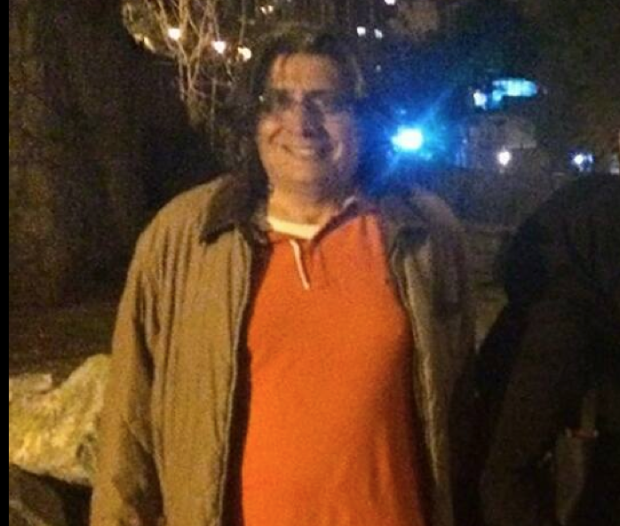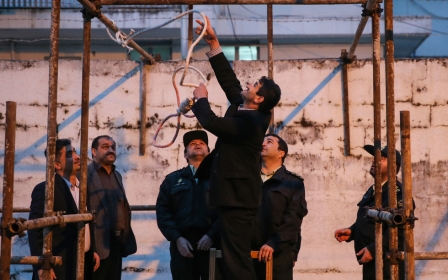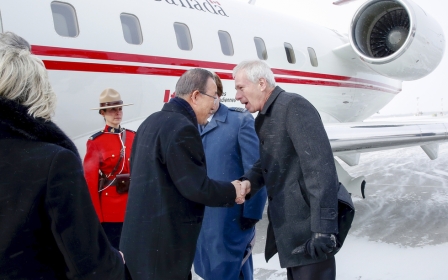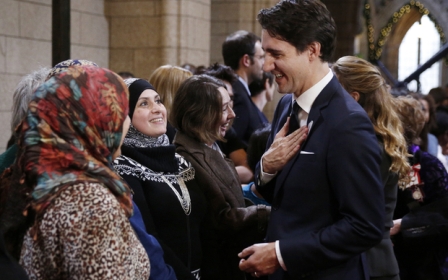Toronto-based filmmaker freed from prison in Iran
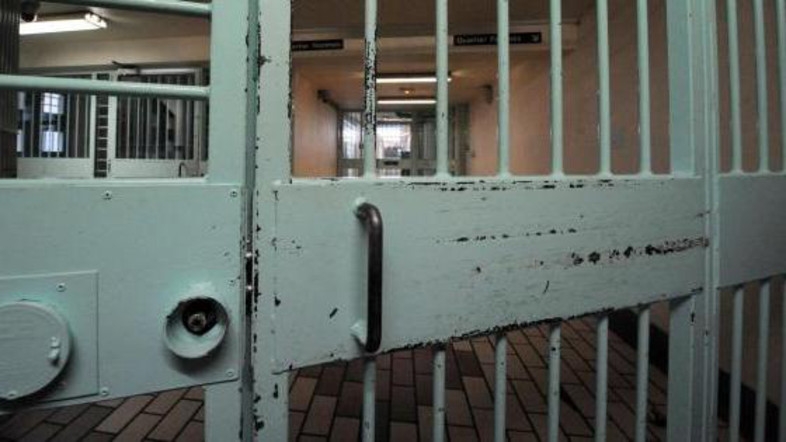
TORONTO, Canada – A Canadian permanent resident has been released from prison in Iran after serving one year of an eight-year sentence, his daughter confirmed to Middle East Eye over the weekend.
Parastoo Azizi said she almost did not believe it when family members called her from Iran to say they were on the way to pick up her father, Mostafa Azizi, from prison.
“Until I heard his voice [outside] of the prison, I would not believe it. But once I heard his voice, it was a relief. I felt a weight lifting off my shoulders,” she told Middle East Eye from her home in Toronto on Sunday, about 24 hours after her father was released.
“It wasn’t easy. We lost about 15 months of our lives to this,” the 26-year-old said about living without her father.
A permanent resident of Canada who was based in Toronto since 2008, Azizi was arrested while visiting his family in Iran in January 2015. He was accused of insulting Iran’s supreme leader and colluding against the country in social media posts.
The 54-year-old writer and filmmaker was held in solitary confinement for 33 days at the notorious Evin prison in Tehran without contact with his family or a lawyer, Amnesty International reported. He was later sentenced to eight years in prison.
“He has been convicted of vague and overly broad national security-related offences for peacefully exercising his right to freedom of expression, including by posting on Facebook,” Amnesty said.
Azizi was released after being granted amnesty, his son, Arash, wrote on social media on Saturday.
Parastoo said she has only spoken to her father briefly over the phone since his release.
“He was very happy, of course,” she said, adding that she was not sure whether he planned to return to Canada or stay in Iran.
“I miss him so much. I really, really want to see him and first of all give him a hug. And I hope he’ll be able to write what he likes to write, he’ll be able to work wherever he likes to, and I hope he’ll be able to freely travel between the two countries,” she said.
“These two countries, they’re both our homes, and we should be able to freely travel without worrying about anything.”
Pressure mounts to release a second Canadian resident
Azizi’s release has reinvigorated calls for Canada to secure the release of another permanent Canadian resident currently imprisoned in Iran.
Saeed Malekpour, a web programmer, was sentenced to death for allegedly creating a web program that was used to post pornographic images online. His sentence was later commuted to life imprisonment.
Malekpour was charged with “acting against national security by spreading propaganda against the system” and “insulting and desecrating Islam”.
“Saeed was in prison for the last eight years and for five years he was in solitary confinement and he was [subjected to] really brutal torture. There is no evidence against him but his forced confession,” his sister, Maryam, told Middle East Eye in a telephone interview from her home in Edmonton.
Amnesty International urged Iran’s supreme court to investigate reports that Malekpour was tortured.
“If he is held solely for the peaceful exercise of his right to freedom of expression, he should be released immediately and unconditionally,” Amnesty’s Ann Harrison said in 2012 when Malekpour still faced the death penalty.
Maryam said Canada’s decision to amend sanctions on Iran earlier this year following the country’s nuclear deal with the P5+1 countries presents an ideal opportunity to raise her brother’s case with Iranian officials.
Non-committal response from Ottawa
But while she said Azizi’s release brings a glimmer of hope, she questioned the Canadian government’s commitment to helping her brother.
In an email dated 23 March, Canadian Minister of Foreign Affairs Stephane Dion told Maryam that Canada was committed to using its re-engagement with Iran to support efforts to advance human rights in the country.
Dion said, however, that while her brother’s case “remains of concern … the fact that he is an Iranian citizen greatly limits the ability of foreign governments, including Canada, to intervene on his behalf with Iranian authorities”.
“They are even acting [as if] they don’t know anything about Saeed’s case. It is frustrating. I live here by myself and I have no support,” said Maryam, explaining that her mother and other brother still live in Iran.
A spokesperson for Global Affairs Canada told Middle East Eye that “the release of a Canadian permanent resident from detention in Iran is very good news,” referring to Azizi.
“However, the situations of other Canadian permanent residents who remain imprisoned there is troubling. We continue to monitor each case,” Francois Lasalle wrote in an email, without explicitly mentioning Malekpour.
Lasalle said the government’s ability to provide consular assistance and engage with local authorities is “severely limited” since the Canadian embassy in Iran is closed. He said privacy concerns prevented Global Affairs Canada from commenting any further.
Creating guidelines to help
Earlier this year, Amnesty International and the Fahmy Foundation, a press freedom group founded by former Al Jazeera English journalist Mohamed Fahmy, called on Canada to do more to fight for the rights of its citizens, permanent residents, and other individuals with close Canadian connections that are detained abroad.
Fahmy, who was unjustly detained in Egypt for over a year with two Al Jazeera colleagues, launched the Protection Charter in January after his return to Canada.
The charter calls on Ottawa to create guidelines “that clearly establish that the Canadian government will take up cases of non-citizens with close Canadian connections” and to follow a consistent policy.
“When approached about such cases Canadian officials generally respond indicating that there is nothing that the government can do because the individual is not a Canadian citizen. Nonetheless some of those cases do then get taken up by the government in various ways,” the charter states.
Parastoo said she hoped Ottawa would do more in support of the many political prisoners in Iran, especially those with ties to Canada.
“There are so many other prisoners in jail who are there just for expressing their beliefs or expressing their opinions. I got to feel what their families are going through and I got to know a few of their families and I truly, truly hope to see all of them released as soon as possible,” she said.
“Especially when something like this happens to their own residents … [Canada] should not be quiet about it.”
Maryam agreed, adding that an intervention from Canada is her “only hope” right now.
“I don’t want to see my brother be imprisoned for life,” she said.
New MEE newsletter: Jerusalem Dispatch
Sign up to get the latest insights and analysis on Israel-Palestine, alongside Turkey Unpacked and other MEE newsletters
Middle East Eye delivers independent and unrivalled coverage and analysis of the Middle East, North Africa and beyond. To learn more about republishing this content and the associated fees, please fill out this form. More about MEE can be found here.


